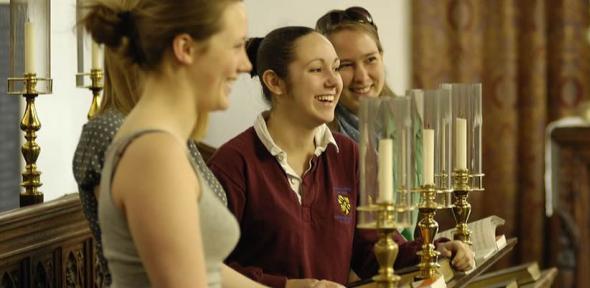
Are you an organist, a singer/chorister or instrumentalist of a very high standard? If you’d like to combine specialist musical experience with a Cambridge degree, you should consider applying for one of our Music Awards.
Choral Awards
Choral Award-holders receive a small financial award each year and, in most Colleges, they also receive a subsidy towards singing lessons. Other forms of support, such as subsidised meals and choir tours, are determined by the individual Colleges.
Find out more about choral awards (Centre for Music Performance website).
Organ Awards
Organ Awards in Cambridge offer unparalleled opportunities to talented organists who wish to develop their skills significantly during the period of their academic studies. The awards vary from College to College but all include a small financial award and some support for music lessons.
Find out more about Organ Awards (CMP website).
Instrumental Awards Scheme
The Instrumental Awards Scheme enables gifted musicians to reach a high standard of performance in chamber music. Successful students are Award-holders for a year, and receive a small financial award (an ‘exhibition’), professional coaching of their ensemble, masterclasses, recital opportunities and a subsidy for instrumental lessons.
Find out more about the Instrumental Awards Scheme (CMP website).
